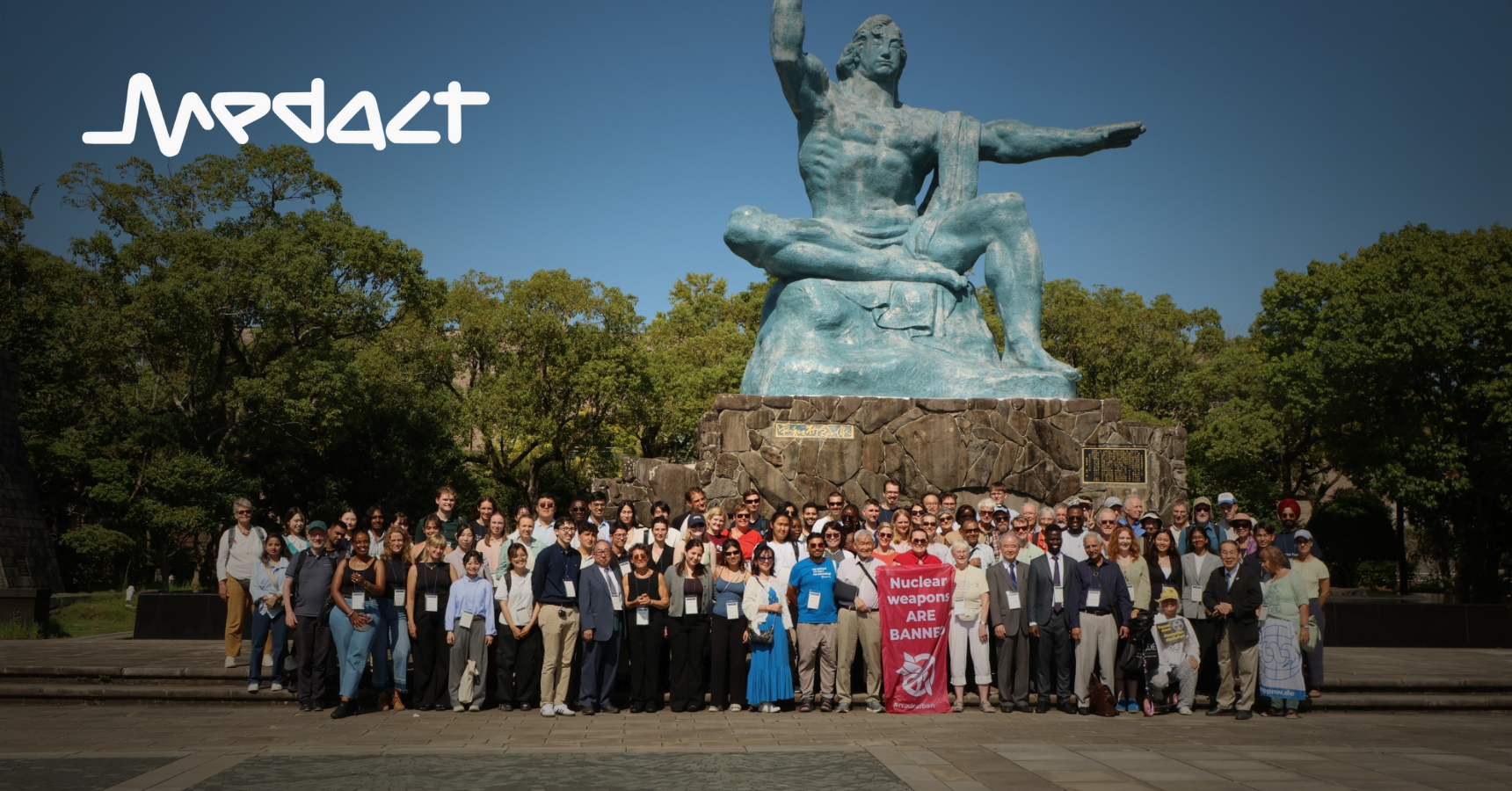
In the run-up to our upcoming event: Building a Nuclear Weapons Free World, members of the Nuclear Weapons Group reflect on key issues for the movement for nuclear disarmament. Here, Bimal offers a round-up of the recent IPPNW World Congress. Recent IPPNW co-president, Dr Carlos Umaña, will be joining us in London this Saturday, 1st November 2025 – register to join us!
The 24th International Physicians for the Prevention of Nuclear War (IPPNW) World Congress convened in Nagasaki from 2–5 October 2025, marking the 80th anniversary of the atomic bombings under the theme “A World Without Nuclear Weapons, Nagasaki as the Last A‑bombed City”. Medact is the UK’s affiliate to IPPNW, and I have personally been involved with the organisation for over a decade – first as an international student representative, and now as a re-elected as a board member.
The event welcomed 352 delegates from over 35 countries, and consisted of high-level plenaries, survivor testimonies, scientific updates on nuclear harm, thematic workshops, student-led sessions, and a range of cross-regional panels with Nobel laureates, UN representatives, and international civil society leaders.
Nobel Laureates (Nihon Hidankyo, 2024; ICAN, 2017), medical and scientific experts and civil society representatives from survivor networks focused on the humanitarian and medical consequences of nuclear weapons. Victims and atomic bomb survivors (Hibakushas) shared their testimonies – from nuclear testing to atomic bombing – as well as their work in advocacy, intergenerational activism and movement building.
Throughout the congress a range of topics were explored through workshops and panel events, including policy, disarmament strategy, and action planning, as well as efforts to challenge uranium mining and the connected struggle for environmental justice in the face of climate crises. Medact delegate and member Michael Orgel delivered a workshop on divestment campaigning for nuclear disarmament – sharing the work of Don’t Bank on the Bomb UK.
Medical students and emerging youth leaders were engaged in developing campaign ideas, research and peer learning networks, focusing on evidence-based advocacy, sustained engagement and knowledge sharing.
Following the trend of the previous IPPNW World Congresses, a 542-km commemorative bike tour was held from Hiroshima to Nagasaki to mark the 80th anniversary of the atomic bombings and advocate for nuclear abolition. Overall, the bike tour amounted to a 4,190-m ascent over 8 days, with 21 participants from nine different countries cycling for peace. The route included visits to museums and cultural sites, survivor meetings, and daily reflections to link historic sites with contemporary peace campaigning. Finally, the congress concluded with the Nagasaki declaration which calls unambiguously for the elimination of nuclear weapons, the universalisation of the Treaty on the Prohibition of Nuclear Weapons (TPNW), and demands the strengthening of international legal and political measures to prevent nuclear weapons use. It also declares nuclear abolition a public health and humanitarian imperative. The meeting also adopted a Gaza Statement, calling for protection of health care and cessation of attacks on civilians and urging medical and scientific communities to amplify advocacy in international forums.
